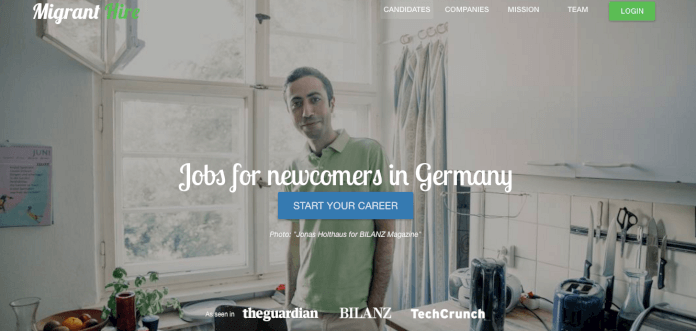The influx of migrants and refugees into Germany has been on the forefront of political and national discussion for nearly two years. The topic of employment, specifically training and finding jobs for migrants, is consistently identified as one of the most important factors for successful integration.
But what about the immigrants who have been settled in Germany for years? Generations even? Well, a new study was just released by the Bertelsmann Foundation. It indicates that employers with an immigrant background created more than 1.3 million jobs in 2014, according to the local.

A great increase from a decade ago
This figure jumped more than 25% from 2005. The study that year indicated that immigrants introduced 947,000 new positions. Furthermore, the study indicated an increasing number of non-German entrepreneurs.
Interestingly, the study indicated that the number of jobs created also varied by regions. The areas of Bavaria, Baden-Württemberg, Hesse and Berlin provided many more work opportunities than the regions of Lower Saxony, Hamburg or Rhineland Palatinate.
Not just your corner kiosk or Chinese restaurant…
The types of industries in which immigrants are employing the most are also shifting. Study leader Armando Garcia Schmidt says, “When people think about the immigrant economy in Germany, they often think first about the kiosk at the corner, or the Chinese restaurant where the whole family works. The data shows that we can dismiss these clichés more and more.”
Between 2005 and 2014 the number of self-employed people with foreign roots working in trade and hospitality decreased by 10 percent to 28 percent. This indicates people are moving to other sectors of work.

For example, one Syrian refugee in Berlin developed Migranthire.com. This platform concentrates on finding jobs for refugees in the tech-sector of Berlin. Through this site, they try to circumvent one of the biggest challenges for refugees finding work: speaking fluent German. In Berlin’s tech-sector English is often the dominant language. And while it will be necessary for workers to learn German to integrate into the culture, job placement will be the first step towards a possible future.
The immigrant income gap

There is also a significant difference in income between not only immigrants and Germans but also between immigrants themselves. Those who pursued entrepreneurial endeavors from an immigrant background earned on average €2,167 euros per month—40 percent more than salaried workers with foreign roots.
Unsurprisingly, there is also a noteworthy difference between salaries of immigrants and their descendants in Germany and those of German heritage. On average, immigrants early 30 percent less than Germans.
Experts suggest the reasoning behind this is twofold. Firstly, immigrant business owners typically have a lower level of education. Secondly, employees whose families and companies have been in the German market for longer typically hold the advantage.
What does this signal for the future?
According to Garcia Schmidt, “Especially when it comes to advancing in more profitable sectors, immigrants are just getting started.”
This could be good news for new migrants looking to set up home in Germany as well. With the Brexit vote, Berlin is becoming more and more attractive as the start-up capital of Europe. This could present a valuable employment market for immigrants looking for work in a more profitable sector.









